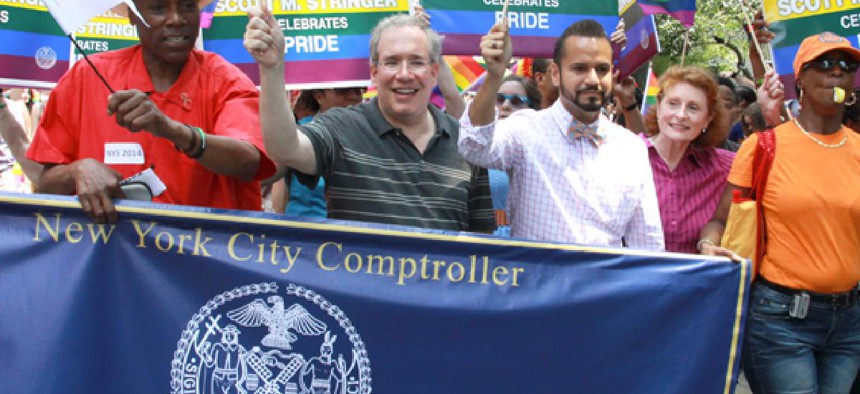LGBTQ Service Guides: Connecting New Yorkers 'To What They Need'

In concurrence with Pride month, the New York City public advocate’s office released—for the first time—a resource guide to mental health services for LGBTQ people living in New York City, called “Tackling Mental Health Services in the LGBT Community.”
The public advocate’s office highlights the need for LGBTQ mental health service information, citing startling statistical realities: 42 percent of LGBTQ youth live in communities unaccepting of LGBTQ people, 33 percent of transgender youth have attempted suicide, and lesbian and bisexual women are twice as likely as heterosexual women to experience suicidal thoughts in the past year.
"LGBT individuals and individuals coping with mental illness are two of the most harshly discriminated against and stigmatized groups in society," said Public Advocate Letitia James in a press release. “No LGBT New Yorker should be afraid to reach out for treatment, or feel that they have nowhere to turn for counseling and support.”
While this was the first time the public advocate has issued a guide, which organizes services by borough, the Office of New York City Comptroller Scott M. Stringer published its updated, annual guide for various LGBTQ services and launched a website containing similar information on June 22.
“New York City, home of the gay rights movement and one of the most LGBTQ-friendly communities in the world, deserves a guide that can connect people to the services they need,” said Stringer in a press release.
This year’s edition includes 250 updated entries and 30 new additions compared to last year’s guide, as well as information about approximately 600 nonprofits and programs providing myriad services to the LGBTQ community.
Information is organized by type of service—like senior care, youth services or health needs—and by borough, including maps of where services are located.
“[The guide] sends a really positive message that city government is interested that the LGBT community has resources and that they can be healthy and successful,” said Glennda Testone, executive director of The Lesbian, Gay, Bisexual & Transgender Community Center, referred to as The Center. “It connects a lot of New Yorkers looking for services to what they need.”
The Center, which provides its own services and information about services online, has conferred with the comptroller’s office about its annual guide in previous years.
Testone says that the public advocate’s inclusion of a mental health service guide is another example of city government’s efforts to making New York City a welcoming place for LGBTQ people.
“You never have to be alone in this city. There are always people here to help,” she added.
